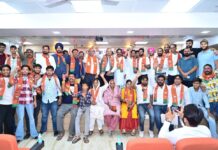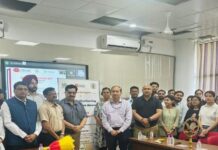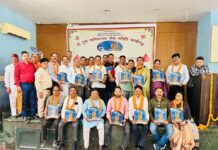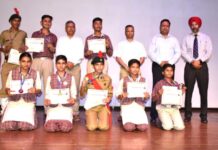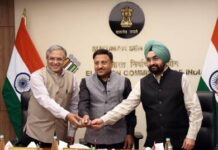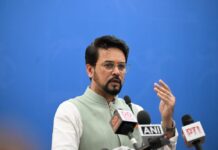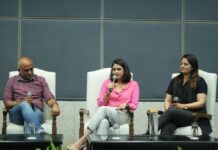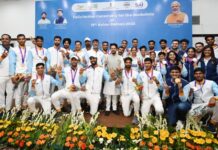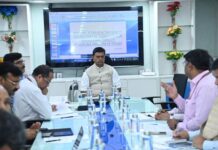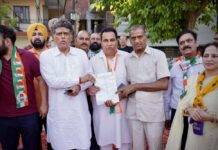India at the Cusp of Digital Transformation
SMART standards will give a major impetus in revolutionizing Industry practices
The Bureau of Indian Standards in association with the International Electrotechnical Commission (IEC) and the International Organization for Standardization (ISO), successfully conducted the IEC/ISO Workshop on Digital Transformation at Yashobhoomi Convention Centre, Dwarka in New Delhi on 22nd and 23rd January 2024.
Shri Chandan Bahl, Deputy Director General (IR & TIS, MSC and SCM) in his welcome address said “Digital transformation is drastically reshaping activities all over the world, be it finance, commerce, education or services and this workshop will create a digital landscape where both man and machine effortlessly engage with standards, serving the diverse needs of everyone involved, be it industry players, regulators, end users, or the broader society”
Mr Rajeev Sharma, DDG (Standardization – II) laid the programme objectives for the 2 day event and stressed the impact of digital transformation in driving Industry 4.0, transforming sectors like power, infrastructure, transportation.
While delivering the inaugural address, Shri Pramod Kumar Tiwari, Director General, BIS said that BIS has been actively involved with both ISO & IEC since its inception in 1947. DG,BIS also mentioned “Being one of the largest standards body, the standards portfolio of BIS currently consists of over 22000 standards ; we have established 387 Sectional Committees as of today under 16 Division Councils, with about 19,000 domain area experts representing industry, industry associations, academic institutions, research & development organizations, central and state government bodies, and civil society groups as members”. He also emphasised that ‘small industries and MSME’s stand to gain most from digital transformation in standards’.
Mr Gilles Thonet, Dy Secretary General IEC and Ms Mara Rolando, Head of PMO, ISO talked about IEC & ISO Strategies and Digital Transformation in their Theme Address and observed that there is tremendous potential to learn from India’s digital transformation journey.
IEC Vice President and SMB Chair, Mr Vimal Mahendroo, while delivering his keynote address on Digital Standards & Conformity Assessment, 2030 and
Beyond elaborated that a holistic approach of using technology as a tool, a positive mindset to use technologies in Strategy and a culture of collaboration can go a long way in bringing about digital transformations in emerging societies.
The workshop saw active participation from ISO Central Secretariat, IEC Secretariat and several ISO member countries including Japan, South Africa, Germany, UK etc. The deliberations threw light on topics like Data Management, End user value, SMART pilots and the workshop gave a platform to deliberate experiences in digital transformation. The diverse group of delegates included representatives from National Standards Bodies, Industries, Academia, Government organizations, Regulators, Indian IT/Tech start-ups, etc.
Standards Machine Applicable Readable and Transferable (SMART) is the joint programme of ISO and IEC to drive the digital evolution of international standards. The workshop was designed as technical sessions constituting various themes to address the need for demystifying SMART standards and digital transformation in the standardization process.
The event provided gainful insights into the current status of SMART standards, fostering a deeper understanding of the advancements and challenges in this domain.
Key Takeaways of the workshop on digital transformation included :-
- Information Dissemination and Awareness Building: The workshop helped to demystify the intricate concept of SMART standards, catering to a diverse audience that included National Standards Bodies (NSBs), industry/industry bodies, manufacturers, service providers, and various stakeholders.
- Tracking Progress in SMART Standards: Participants gained insights into the current status of SMART standards, fostering a deeper understanding of the advancements and challenges in this domain. The workshop gave a platform to discuss technological hurdles that may impact the development of SMART standards, offering a comprehensive overview of the landscape.
- Industry Sensitization to Digital Transformation: The workshop sensitised the role that digital transformation plays in standard formulation and the establishment of technical regulations.
- Value Derivation for National Standards Bodies (NSBs): The workshop also focused on the potential for National Standards Bodies (NSBs) to derive substantial value from the utilization and adaptation of digital transformation principles and SMART standards and impact NSBs’ efficacy and relevance in the evolving standards landscape.


